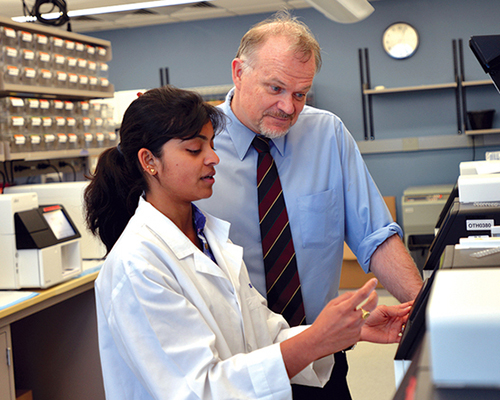
The NIH’s All of Us Research Program has awarded a total $28.6 million to establish three genome centers nationwide.
All of Us is the research cohort piece of the Precision Medicine Initiative (PMI) designed to glean health and wellness data from 1 million or more Americans. The funding is intended to enable the three centers to begin generating genomic data from biosamples contributed by program participants.
The three designated NIH All of Us Research Program Genome Centers are:
• A partnership of Baylor College of Medicine, Johns Hopkins University, and The University of Texas Health Science Center at Houston’s School of Public Health (UTHealth);
• A partnership of The Broad Institute of MIT and Harvard, the population genomic technology company Color, and the Laboratory for Molecular Medicine (LMM) at Partners HealthCare; and
• Northwest Genomics Center at the University of Washington, Seattle.
“There’s a long-term vision here that the numbers of individuals who will ultimately be accessioned into the program can drive the statistical significance that we need to underpin discovery projects like: What causes heart disease? What causes certain types of cancer? What causes behavioral disorders?” Richard Gibbs, Ph.D., founding director of the Human Genome Sequencing Center (HSGC) at Baylor and principal investigator of the Baylor-Hopkins Clinical Genomics Center, told Clinical OMICs.
HSGC will generate DNA sequencing and provide clinical reports for key genes relevant to each participant’s health at its CAP/CLIA certified clinical laboratory. Johns Hopkins’ Genomics Center for Inherited Disease Research (CIDR) will contribute genotyping—the first level of genomic data generated for many participants—while UTHealth will carry out data communication and flow to the All of Us Data and Research Center (DRC), drawing on extensive cloud computing experience with commercial partners.
Researchers will look to glean insights into a wide range of disorders. “We’re no longer doing this driven by a single disorder mentality. We’re doing this by a, ‘Let’s transform the medicine and research,’ and bring down some of the barriers so we can enable all types of studies to proceed,” Gibbs said. “Having said that, I’ll tell you that I think that the quickest advances are probably going to be in the cardiovascular area, because that’s such an important disorder. It’s so frequent. And there’s other progress elsewhere that will be leveraged by this kind of program. That’s just my prediction.”
Click here to access the rest of this article.











